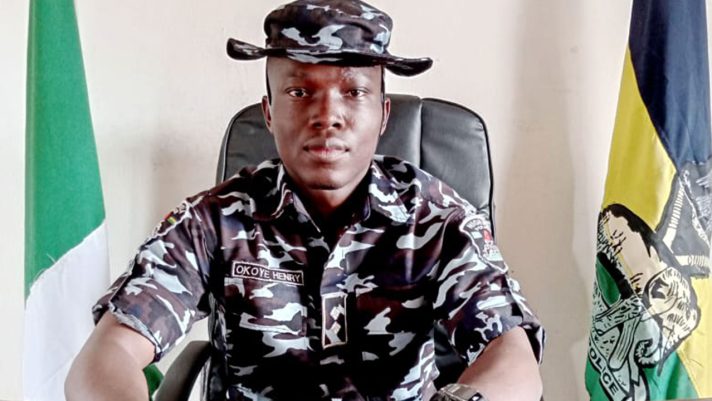The Imo Police Command has said it arrested at least 200 suspects in the past three years, in connection with the various killings and other heinous crimes in the state.
The command’s Public Relations Officer2 (PPRO), ASP Henry Okoye, disclosed this in a statement made available to the News Agency of Nigeria (NAN) in Owerri on Sunday.
Okoye further stated that the command recovered more than 50 assault rifles allegedly “from the hands of the criminal elements” during the period
“Most of the suspects have been arraigned and remanded in the Custodial Center, Owerri, while others are still undergoing trial,” he added.
He was however silent on the number of casualties from the countless violent attacks and counter-attacks between the state and non-state actors.
The PPRO stated that in the wake of the rising insecurity, the command rolled out security strategies aimed at crippling the activities of criminally minded elements, hence was able to achieve the feat.
He stated: “A large number of escapees during the jail break of the Owerri Custodial Center were re-arrested and returned to the center.
NAN reports that the unfortunate incident, which happened a few years ago, resulted in a spike in criminal activities in the state.
“The command has dominated the entire security space, especially the crucial areas and routes were we have identified, through painstaking intelligence gathering, that hoodlums pass through to unleash any given attack,” Okoye added.
He, therefore, allayed the fear among the residents that the police and other security agencies had been overwhelmed by the security situation in the state.
According to him, the command is fully prepared to provide maximum safety and security for lives and property of all and sundry in the state.
“The officers and men of Imo command are highly motivated to achieving that and are ready to give their all in the discharge of the Constitutional mandate of the Force.
“The command has deployed enhanced security measures to put an end to the activities of miscreants, who unleash mayhem on the good people of the state.
“The Commissioner of Police (CP), Mohammed Barde, has mandated Area Commanders, Divisional Police Officers and Tactical Team Commanders to embark on an intelligence-driven and community policing-oriented strategy in the fight against criminality in the state,” Okoye added.
He stated that Barde also charged the personnel to continuously gather actionable intelligence, identify and raid enclaves of the proscribed Indigenous People of Biafra and its armed wing, the Eastern Security Network.
“The CP also charged the operatives to raid enclaves of armed robbers, kidnappers and other criminal hideouts with the sole aim of arresting the hoodlums and making them to face the full wrath of the law,” Okoye stated.
He added that the command had dominated the entire security space, ensuring the security of lives and property of all the residents of the state.
However, a rights advocacy group, known as the Rule of Law and Accountability Advocacy Centre (RULAAC), disagreed with the police assertion on the damming security breaches in the state.
The Executive Director of the organisation, Mr Okechukwu Nwanguma, argued that Imo still remained under the siege of both state and non-state actors for the past three years.
Nwanguma said in an interview with NAN that “the issue of endless killings and other forms of criminal activities in Imo still remained a worrisome situation.
“The economy of the South-East has been crippled by insecurity and the counter-productive every-Monday sit-at-home enforced by misguided criminal elements,” he said.
The rights activist blamed the security challenges in the state on criminal gangs of different hues as well as “the high-handed and brute force response” by both formal security agencies and state-controlled security outfit – Ebubeagu.
Nwanguma further identified the interference with and disruption of community governance and the instigation of communal violence as additional causes of insecurity in the state.
He said that there were no official statistics for the casualties of insecurity in the state, alleging that “security agencies treat the records as official secret.
“Available records are from media reports and cases documented by civil society organisations and perhaps development partners,” he said.







